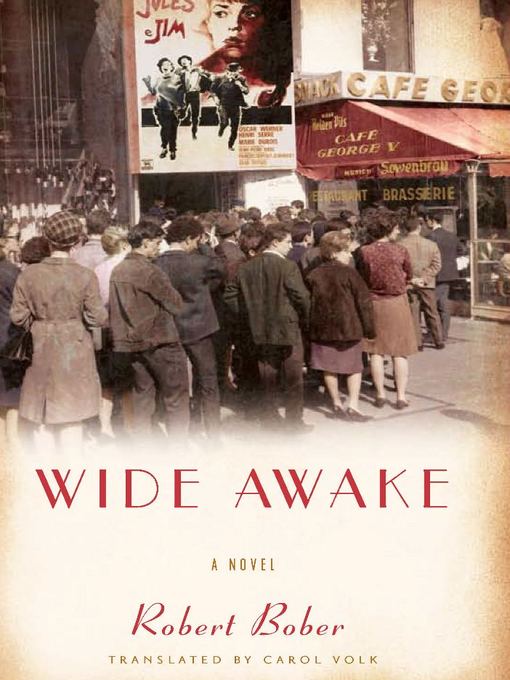
Wide Awake
A Novel
کتاب های مرتبط
- اطلاعات
- نقد و بررسی
- دیدگاه کاربران
نقد و بررسی

October 17, 2011
In this meditative novel set in the early ’60s, French film director Bober looks at the Holocaust’s legacy from the perspective of the generation that immediately followed. Bernard Appelbaum, 21 years old and newly entranced by his native Paris seen through the lens of filmmaker François Truffaut, lands a role as an extra in Truffaut’s latest, Jules et Jim (a story of simple coincidences shaping one’s life). Upon seeing the film, Bernard’s mother, Hannah, opens up about her own life’s coincidences, especially how her marriage to Bernard’s father, Yankel, resulted from their mutual friend Liezer’s absence one evening, giving Yankel the chance to confess his love. After Yankel died in the camps when Bernard was only two, Hannah reconnected with Liezer, whom she married and with whom she had Bernard’s half-brother, Alex. However, when Liezer dies in a plane crash, both boys are left fatherless and brimming with questions about their shared heritage. Though Bober writes lyrically of Paris and its young people struggling with the legacy of WWII, the plot meanders toward the end as Bober depicts obscure corners of the city, Bernard’s young loves, and the choices that lead him to face his family’s past.

November 15, 2011
"Nostalgia is good because it makes things present that no longer are." Thus declares a habitue of a bar in Paris's Belleville neighborhood. Nostalgia is certainly the name of the game here. Bernard Appelbaum, the narrator of this slim work by Bober (coauthor, Ellis Island), seems in many respects like Proust, spending his time in remembrance of things past. He spends pages crossing and recrossing Paris neighborhoods, with special attention to the area toward the east around Belleville. He encounters Robert, a former acquaintance who has become a location scout for noted filmmaker Francois Truffaut. Thereafter, Bernard becomes somewhat obsessed with the Truffaut film Jules and Jim, and he uses that as a point of departure for further reflections on the past. The most poignant aspect of Bernard's investigations involves his parents, originally from Poland, during and after the Holocaust. VERDICT The publisher's promo has it right: Bober has penned a "fictional memoir," one that only half-heartedly seems a novel. Save this only for lovers of Paris drenched in nostalgia.--Edward Cone, New York
Copyright 2011 Library Journal, LLC Used with permission.

December 1, 2011
Walking the streets of Paris one day, the narrator of this fictional memoir runs into an old friend and ends up an extra in Franois Truffaut's film Jules and Jim, an opportunity that allows him to steal a kiss (if only a fake film kiss) from a woman with whom he was in love many years ago at summer camp. This, in turn, leads to a conversation with our narrator's mother about her two suitors, which leads to a box of old photographs, which leads to questions about the secrets and the horrors of the past. A year later, again wandering along the Rue Vilin, he realizes that the places he has passed, looking at them without taking the trouble to really see them, were just like the photographs my father had saved; they were responding to a need, a conclusion that leads him to a tarot reader. Given its peripatetic pace and photographic emphasis, certain comparisons to W. G. Sebald (Austerlitz, 2001) are inevitable and appropriate. But Bober is as interested in his narrator's present-day family, especially his bright and quirky son, Alex, as he is in the truth of uncovered memories, and this engaging novel is thus variously somber and nostalgic, light and dark.(Reprinted with permission of Booklist, copyright 2011, American Library Association.)

























دیدگاه کاربران